Practical math application Math Worksheets for Ages 4-9
10 filtered results
-
From - To
Discover our engaging Practical Math Application worksheets designed specifically for children ages 4-9! These worksheets help young learners develop essential math skills through real-world scenarios, making math fun and relatable. Our carefully crafted activities encourage problem-solving, critical thinking, and a strong foundation in basic math concepts. From counting money to measuring ingredients, children will explore practical applications of math in everyday life. Suitable for home or classroom use, these worksheets provide a hands-on approach to learning, ensuring your little ones stay motivated and excited about math. Enhance your child's confidence and skills with our dynamic and interactive resources today!
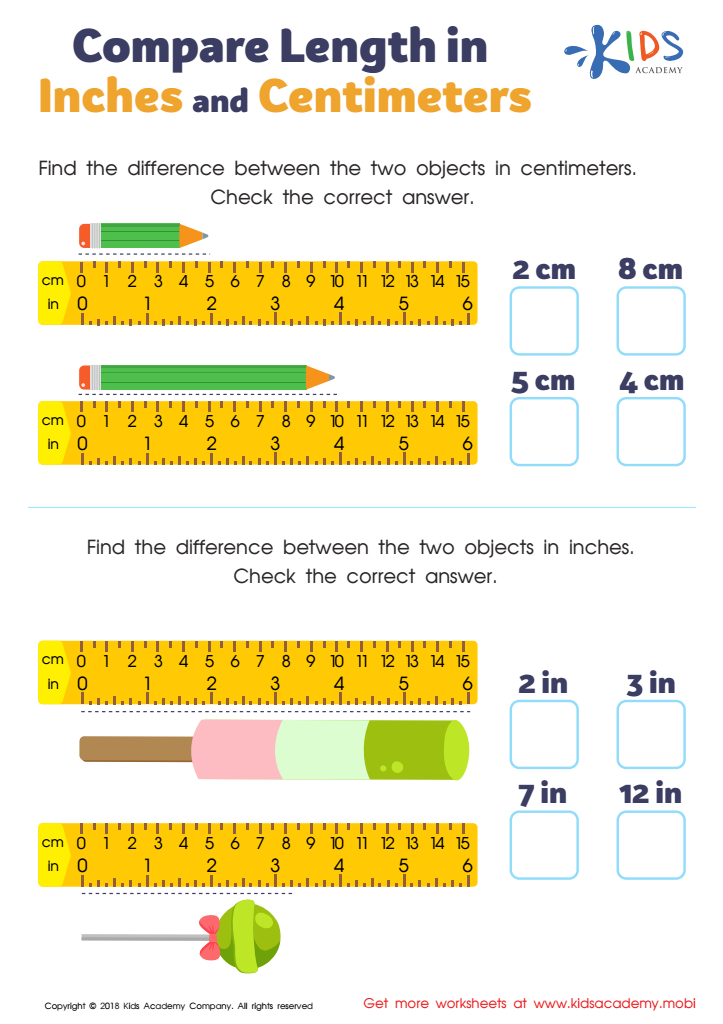

Compare Length in Inches and Centimeters Worksheet
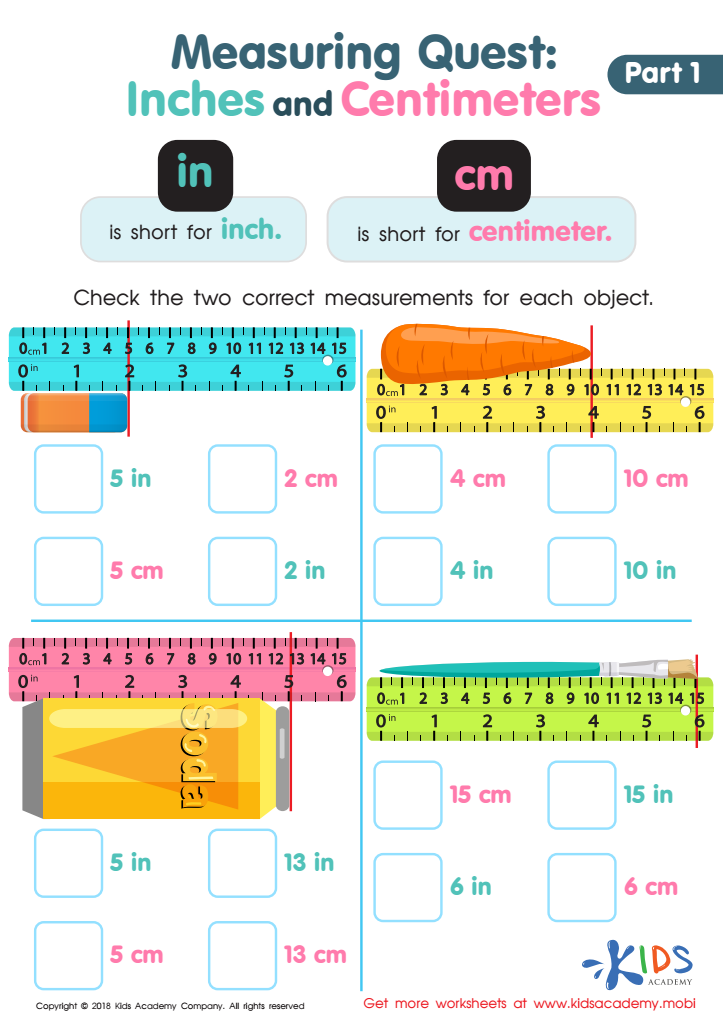

Measuring Quest: Inches and Centimeters Worksheet
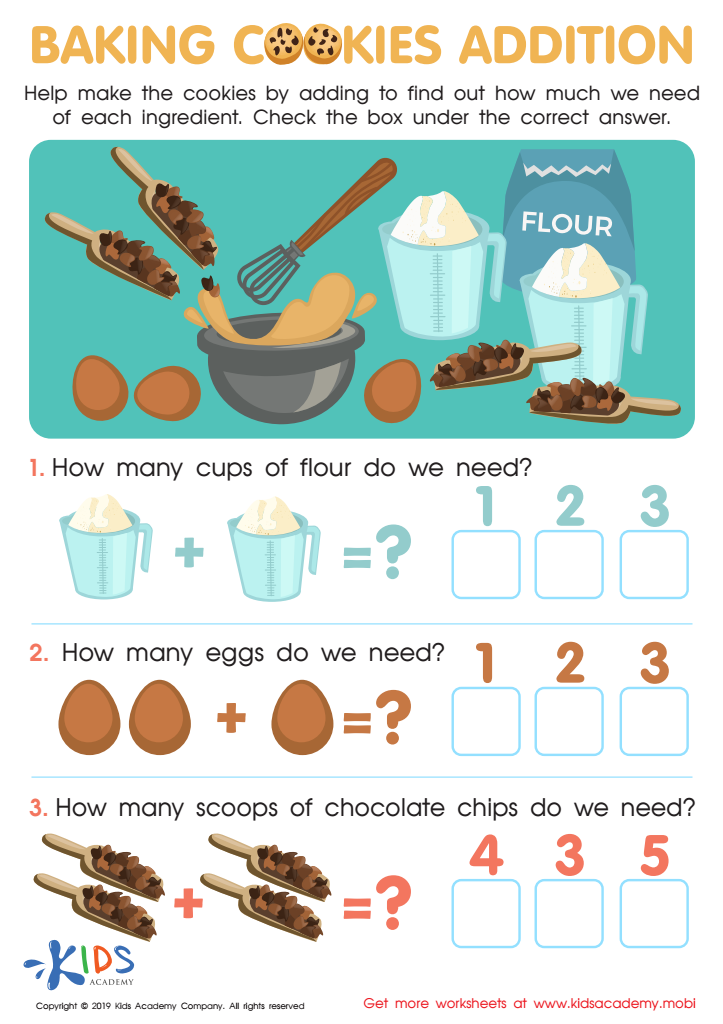

Baking Cookies Addition Worksheet
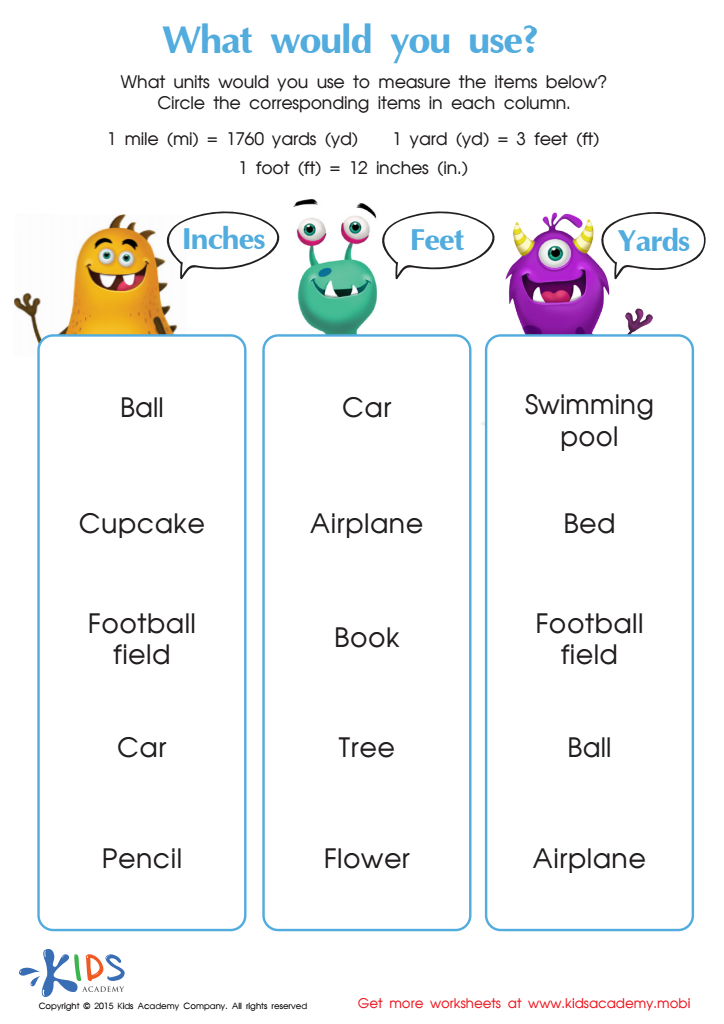

Learning about measuring objects in inches, feet and yards Worksheet
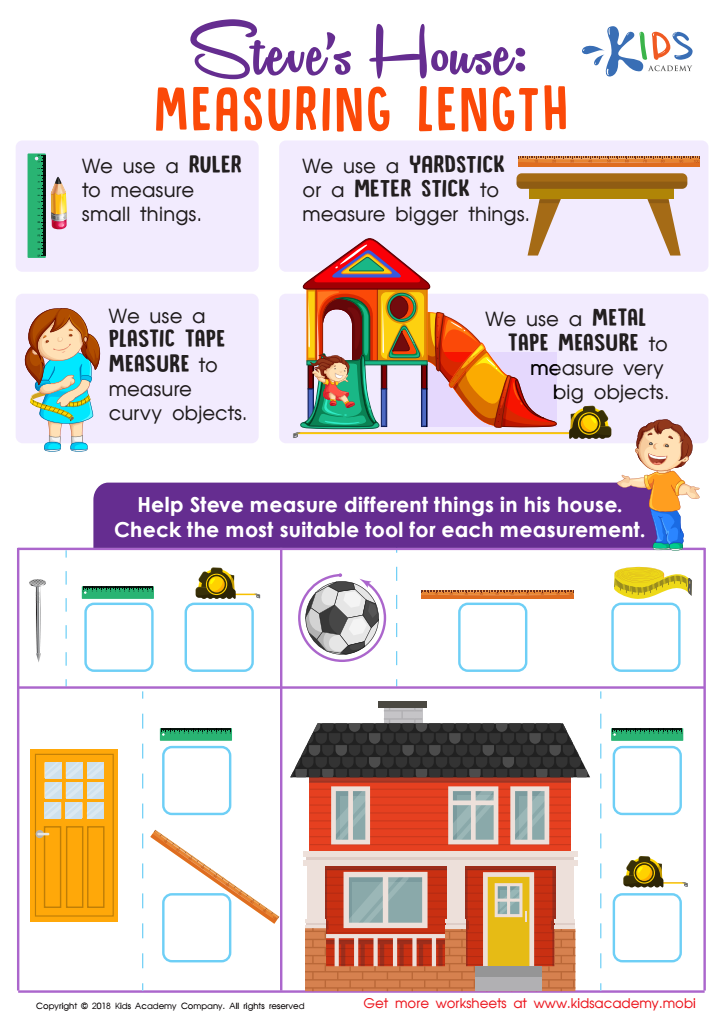

Steve's House: Measuring Length Worksheet
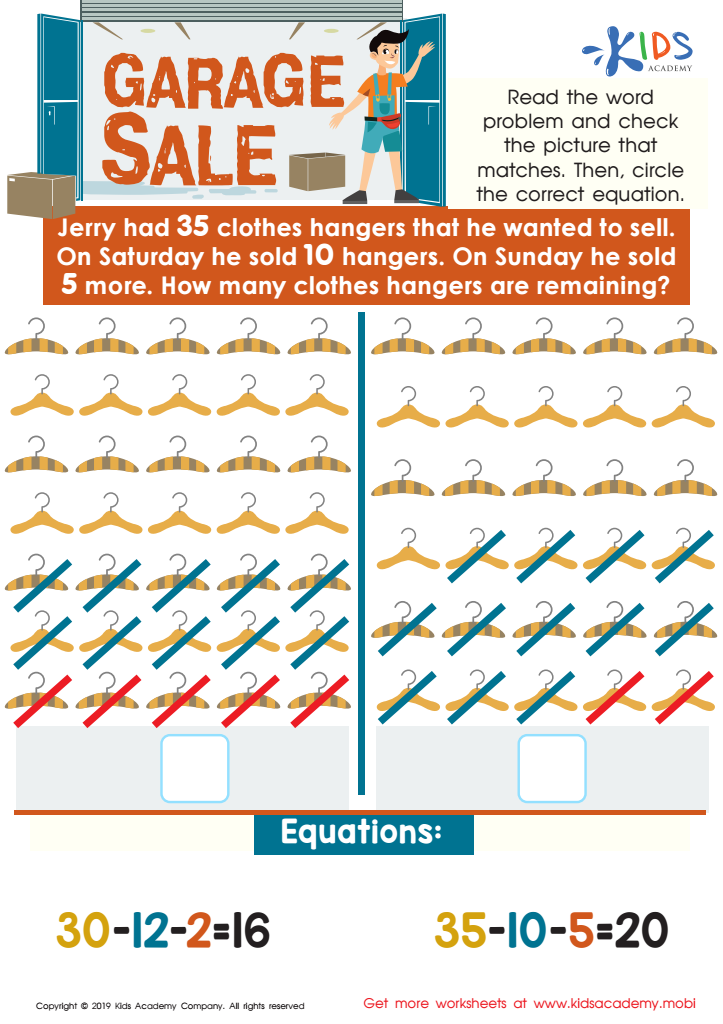

Garage Sale Worksheet
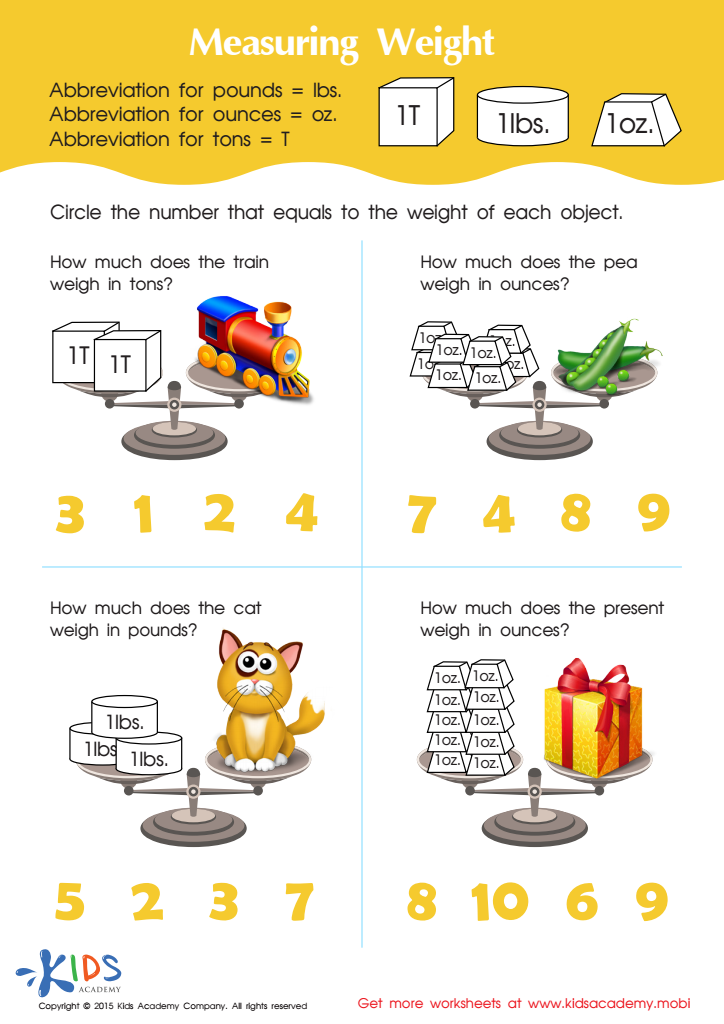

Measuring Weight in Ounces, Pounds and Tons Worksheet
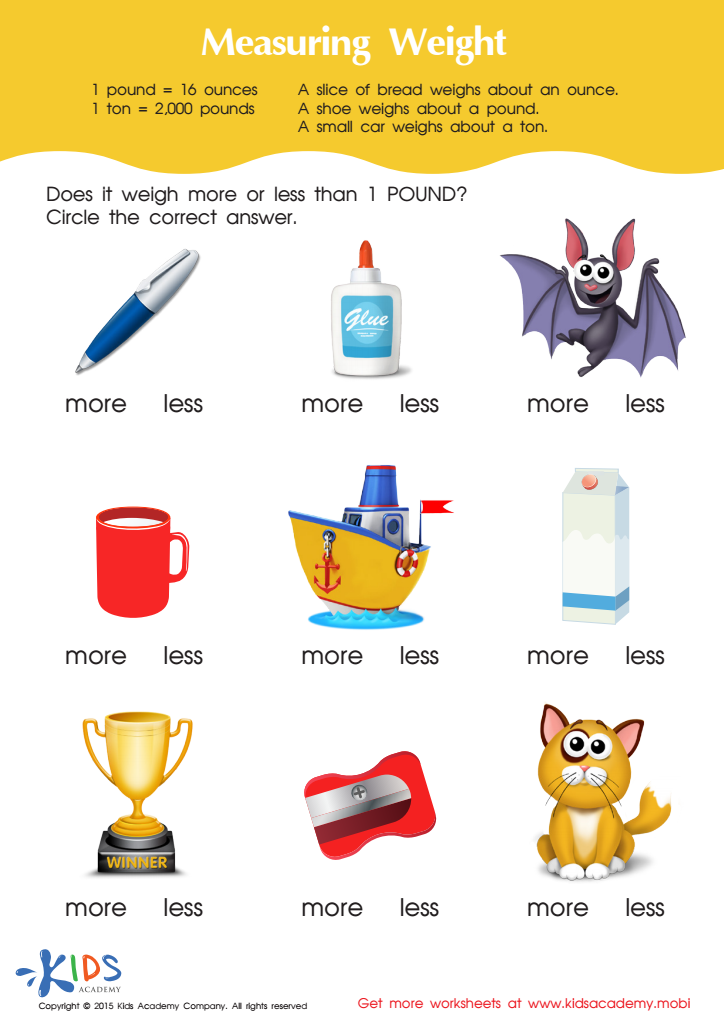

Measuring weight in pounds Worksheet
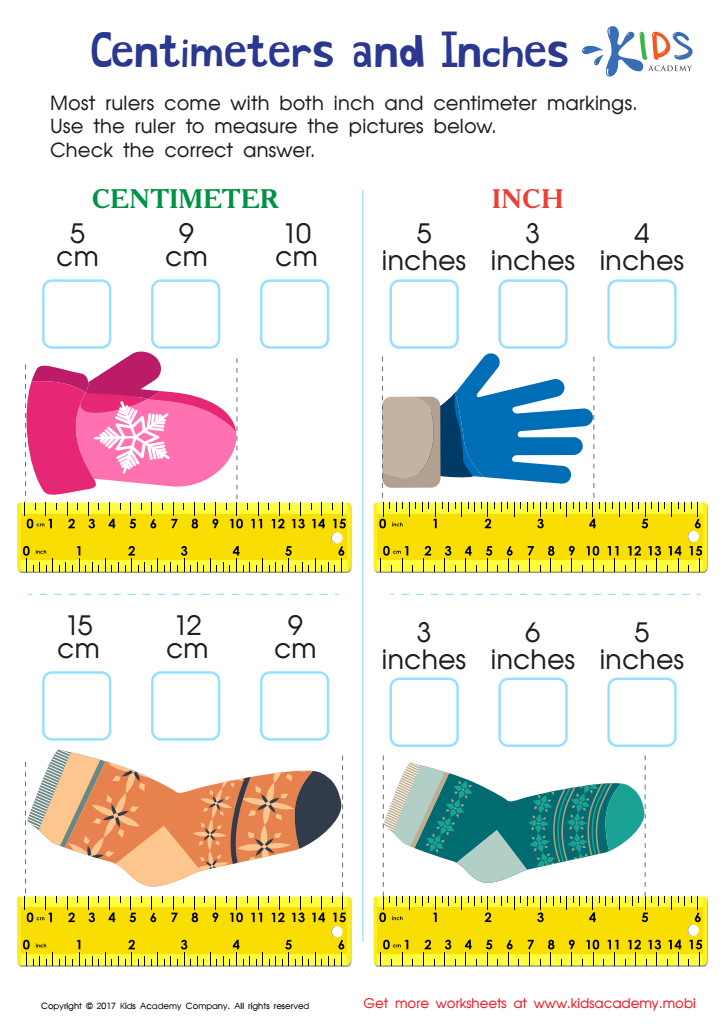

Centimeters and Inches Worksheet
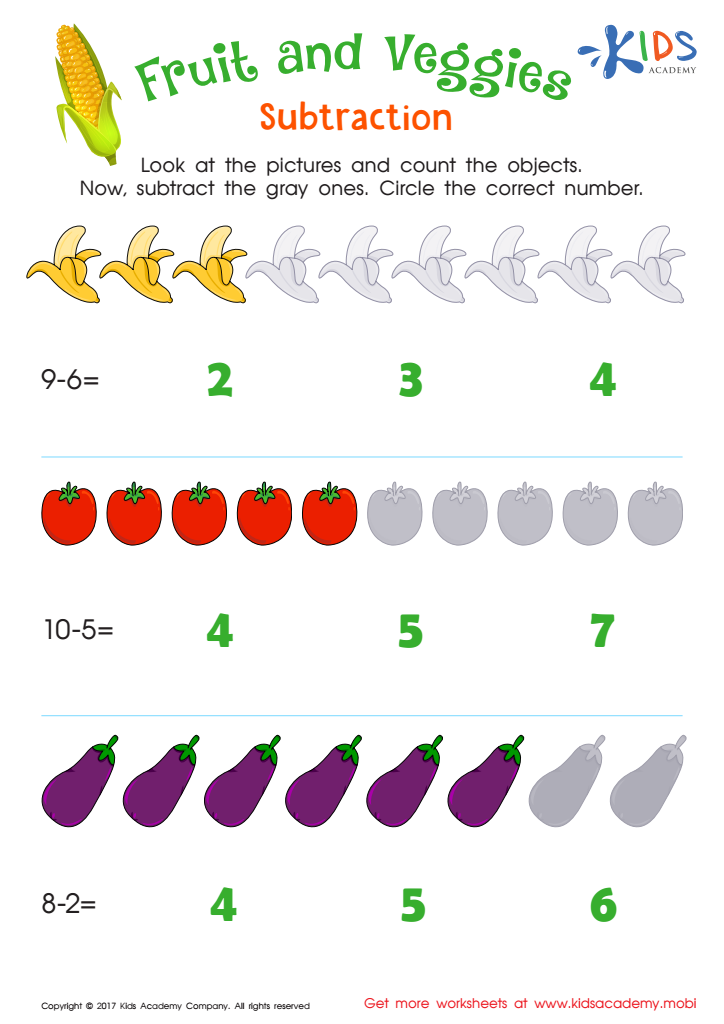

Fruit and Veggies Subtraction Worksheet
Practical math application is crucial for children aged 4-9 as it lays the foundation for lifelong learning and comprehension of everyday situations. During these formative years, children explore the world through play and hands-on experiences, making it an ideal time to integrate math into real-life scenarios. Providing practical applications helps children see math not just as abstract numbers and symbols but as a tool for solving everyday problems.
When parents and teachers emphasize practical math, such as measuring ingredients while cooking, counting items during shopping, or telling time, they foster critical thinking and problem-solving skills. These activities make math relatable and engaging, boosting children's confidence and interest in the subject. Moreover, practical math encourages communication and social skills as children discuss their ideas and solutions with peers or family members.
Additionally, incorporating math in daily life can aid in developing a growth mindset. Children learn that mistakes are a natural part of the learning process, and perseverance leads to improvement. As a result, focusing on practical applications not only prepares children for academic success but also equips them with essential skills for real-world scenarios, nurturing a positive attitude towards lifelong learning. Ultimately, making math relevant and enjoyable can inspire self-motivated learners.
 Assign to My Students
Assign to My Students




















